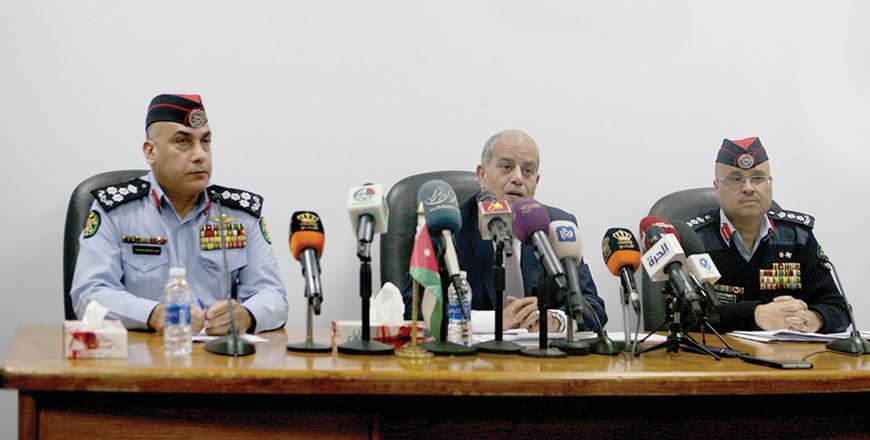You are here
Report on torture calls for administrative, legislative reforms
By Dana Al Emam - Mar 06,2017 - Last updated at Mar 06,2017
AMMAN — A report that documented cases of alleged torture and cruel treatment by law enforcement officers against detainees and prisoners calls for a set of administrative and legislative reforms to end this “phenomenon”.
Issued on Monday by the Adaleh Centre for Human Rights Studies (ACHRS), the centre’s first annual report highlighted gaps in the government’s commitment to enforcing national laws and international agreements that ban torture, and cited cases whereby violators evaded justice.
Suspected torture cases, which allegedly occur at the Anti-Narcotics Department and the Criminal Investigation Department, according to the report, employ methods that leave no physical traces, such as electric shocks, sleep deprivation and tiring postures, a matter that made documentation more difficult.
The report documented 11 cases of torture allegations, while additional torture complaints to the ACHRS and other concerned organisations are still under study and need to be further supported by evidence and documentation.
Yet, the centre said not all torture cases in Jordan were documented, as some of the allegedly tortured refuse to provide details out of fear. In addition, the lack of legal protection for the tortured and their families stops them from complaining.
While Jordanian laws “lack a clear definition of torture”, the report criticised authorities for allegedly covering up torture in the name of protecting the country’s security against outlaws and terrorists.
In addition, the study called for revisiting the Crime Prevention Law, which allows for administrative detention without trial, and enforcing the law against violators, as well as intensifying penalties in cases of torture.
The study called for enhancing training and rehabilitating of law enforcing officers on how to deal with detainees and prisoners according to regulations.
ACHRS Director Asem Rababa said solitary confinement and preventing contact with family or a lawyer were among the main violations.
Commenting on the report, the government’s coordinator on human rights, Basil Tarawneh, acknowledged “individual” incidents of torture and cruel treatment, but said such acts “do not represent the state”.
Tarawneh added that a specialised high-level committee will convene next week to discuss the report’s recommendations. This committee has been studying all local and international reports on torture over the past three years.
The committee is part of the government’s efforts to “address all shortcomings” in this aspect, he said, adding that three cases of torture were referred to the police court.
Regarding solitary confinement, he said the prosecutor general reports such cases to the Red Cross and the National Centre for Human Rights.
Jordan is a state party to the Convention Against Torture and Other Cruel, Inhuman or Degrading Treatment or Punishment.
Rababa said authorities do not allow visits by civil society organisations to monitor detention centres, a matter that prevented further research into the report.
Furthermore, requests for assistance from forensic medicine experts were mostly rejected in torture cases, the report claimed, adding that forensic examination is only provided in cases of death, and it only examines the cause of death, regardless of any traces of torture.
Rababa alleged that a number of deaths have occurred as a result of torture over the past five years, adding that four cases of torture are being examined by the judiciary.
However, he pointed out that no court rulings were issued so far “although the Cassation Court has in several incidents cancelled some hearings of detainees who complained about torture”.
The report, which is based on monitoring the work of several national and international bodies in this regard, as well as a series of interviews with experts and individuals who claimed to have been tortured, highlighted the absence of social and legal support to “victims” of torture due to the nature of the crimes they committed.
Meanwhile, the report also called for ratifying the Optional Protocol to the Convention against Torture and other Cruel, Inhuman or Degrading Treatment or Punishment.
In addition, the study recommended creating a fund to compensate families of victims of torture and cruel treatment.
Related Articles
AMMAN — Deemed a crime against human dignity and a grave violation of human right principles, torture must become a socially rejected practi
AMMAN — A gathering of government and civil society representatives in Geneva, Switzerland, on Friday will review the progress of torture pr
AMMAN — Some individual cases of torture cannot be elevated to the status of "systematic approach" by the state and it is unfair to make a g

















